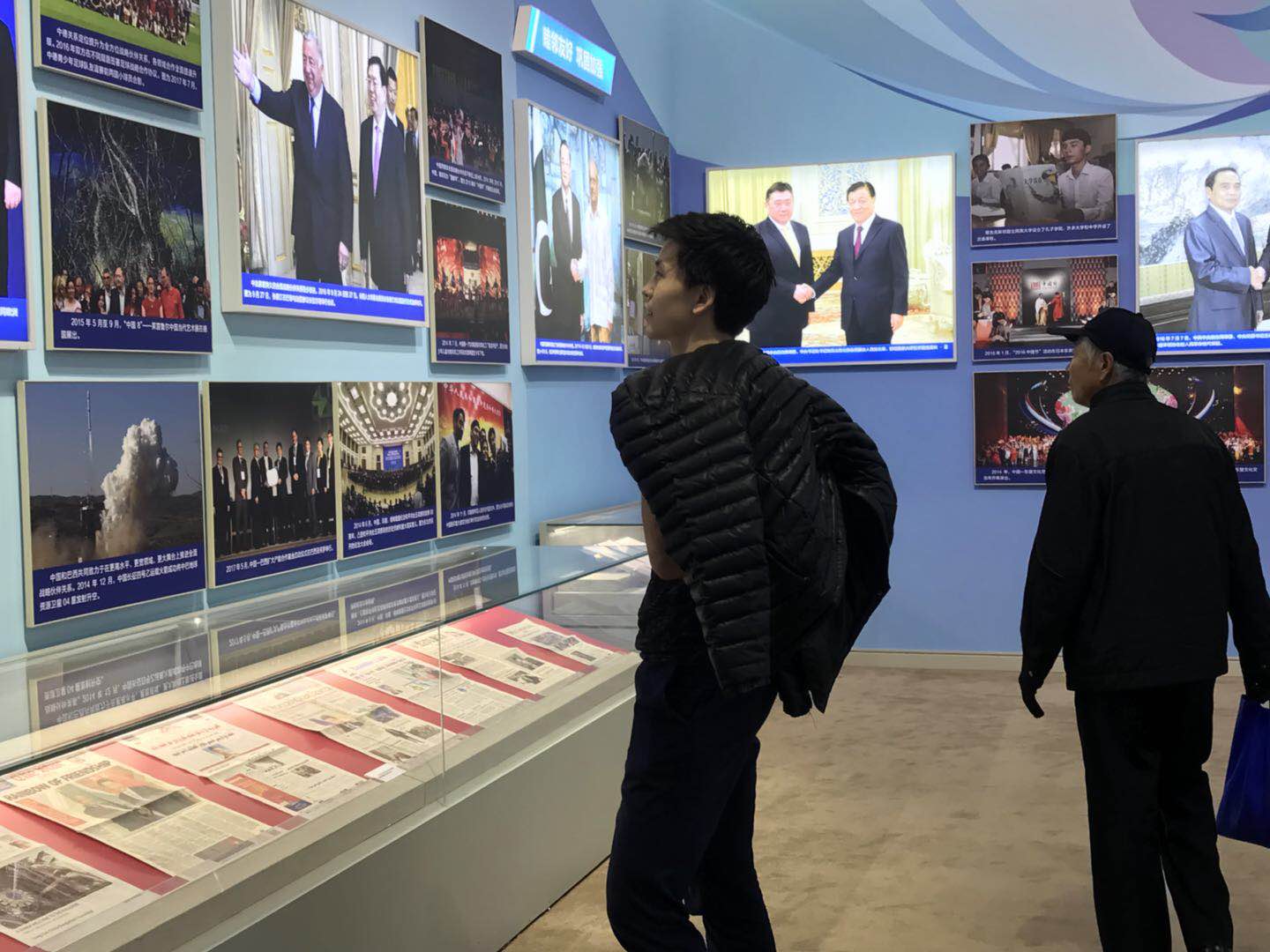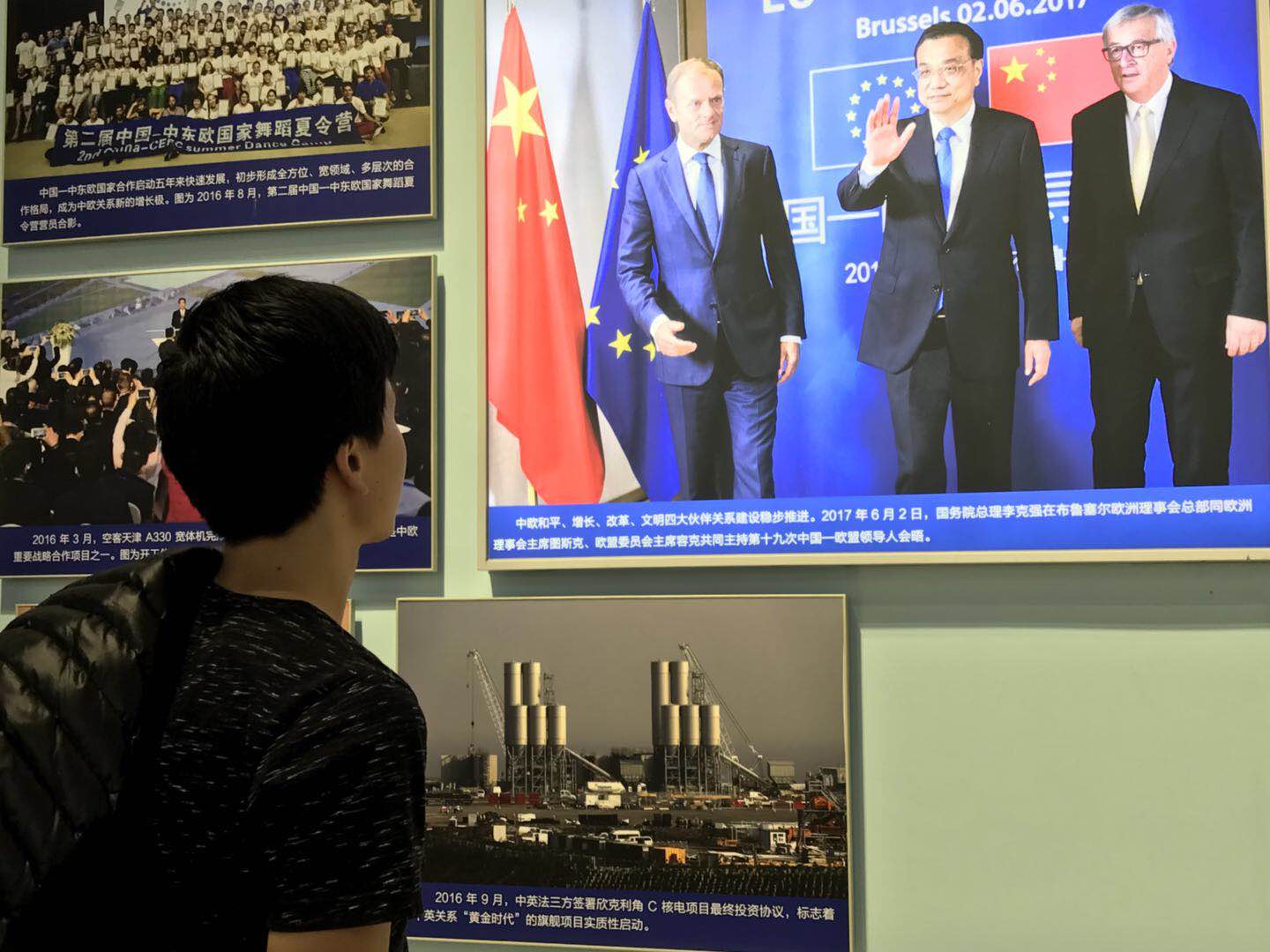By Eduardo Baptista, scholar of Yenching Academy, Peking University
China's economic and political development have challenged paradigms and models that had previously been considered irreplaceable. The Beijing Exhibition Center stands as a testimony to China’s greatness. Twenty years ago, the idea that socialist China could become the largest and most entrepreneurial, foreign investor in the world would have sparked much laughter and mockery among many members of the international community.
Nevertheless, the "Peaceful Development" – the long-standing ground rule of Chinese foreign policy since the late 1990's – has reaped prosperous and bountiful fruits. The rising role of Beijing in global governance stood on full display at the Beijing Expo. By viewing pictures of the most recent BRICS (Brazil, Russia, India, China and South Africa) summits, you can see the outstanding benefits of Chinese investments in African countries, along with a photo of Chinese President Xi Jinping’s meeting with global leaders that filled two rooms.

Author Eduardo Baptista at the Beijing Expo.
As a Portuguese citizen, I felt disappointed but not surprised that my country was not featured at the Beijing Expo, since it highlights the shortcomings of Portuguese diplomacy. Yet not surprised because China is already the No.1 foreign investor in almost all Portuguese-speaking countries, including Angola for instance, and so it’s only natural these countries take priority over Portugal.
Even though Portugal does not appear at the Beijing Expo, its relations with China are historically longer than almost all of the nation-states included in the Beijing Expo. The signing of the 1554 Sino-Portuguese treaty, between Captain Leonel de Sousa and Haitao Wang Po of the Guangdong marine, was one of the earliest trade agreements China had made with an European country.
There are also pertinent examples of Sino-Portuguese interactions that coincided with profit motives. In 1672, Jesuit Tomás Pereira arrived in Macau, travelling to Beijing and subsequently becoming Emperor Kangxi's personal translator, tutor, and counsellor. Every year, the relationship between the two is honored through the Tomás Pereira Prize, which attracts China's best Portuguese language students for a weekend of oral and written competitions.
Friendly ties have long defined the nature of Sino-Portuguese diplomacy. In a cycle of conferences about China held in Lisbon through the month of May this year, one conference, "The Importance of Inter-Cultural Exchange in Sino-Portuguese Relations" included speeches by the Chinese Ambassador to Portugal, Cai Run, and President of Foreign Service Academy of Portugal, José Freitas Ferraz. Both speeches had emphasized the weight of history in the importance of the two countries' relations, Cai had noted the links of Portuguese trade with China through the Silk Road, Ferraz highlighted the 500th anniversary of the arrival of Portuguese caravans to Asia.

Author Eduardo Baptista at the Beijing Expo.
Nonetheless, the relations between both countries go deeper than cultural exchanges and historical legacies. In a 2010 historical catalogue of Sino-Portuguese ties issued by the Portuguese Ministry of Foreign Affairs, Luís Amado, Portugal's Minister of Foreign Affairs, observed that despite limitations posed by the country's dependence on the European Union, 'Portugal, loyal to its historical tradition, intends to continue exerting its role as a facilitator of dialogue, which particularly relevant in the current formation of a new multipolar international order.'
In short, underneath the amicable rhetoric of Sino-Portuguese diplomacy, Portuguese foreign policy recognizes just like their counterparts in Angola, Brazil, and Mozambique – that China is the new power to conduct real business and negotiations with.
The development comes at a time when US influence in Portugal is diminishing. Funding for the US base in Lajes has dropped for the past decade. Lajes is located in the Azores Archipelago, the only populated body of land on the Atlantic Route from the East Coast to Europe. The American base has long been strategically crucial for Washington as an entry point into Europe but in late 2016 António Costa, Portuguese Prime Minister, gave a public statement announcing the possibility of Chinese investment in Lajes.
The development caused panic within the Pentagon, but there is nothing Washington can do against attractive economic incentives that Beijing is providing to Lisbon. If not for Portugal's small size, it is likely more attention would be given to the fact that between 2011 and 2015, Portugal was the EU country with the largest proportion of national GDP originating from Chinese investments.
Portugal's gaze is turning away from the Atlantic Ocean and back towards the Silk Road, which Portuguese explorers had used about 500 years ago to reach imperial China. From huge deals such as the 2.7 billion euros China Three Gorges (CTG) forked out to purchase 21.35% of Portugal's public energy provider – EDP – to investment company Fosun and its founder Guo Guangchang's partnership with influential Portuguese football agent, Jorge Mendes, Sino-Portuguese relations are becoming ever more entrenched in mutual interests, following the win-win logic of "Peaceful Development" that the Chinese leadership has been using since 2004. Perhaps one day, I will go back to the Beijing Exhibition Center and see amazing Sino-Portuguese interactions included as well.
(The opinions expressed here do not necessarily reflect the opinions of Panview or CCTV.com. )

Panview offers a new window of understanding the world as well as China through the views, opinions, and analysis of experts. We also welcome outside submissions, so feel free to send in your own editorials to "globalopinion@vip.cntv.cn" for consideration.
















